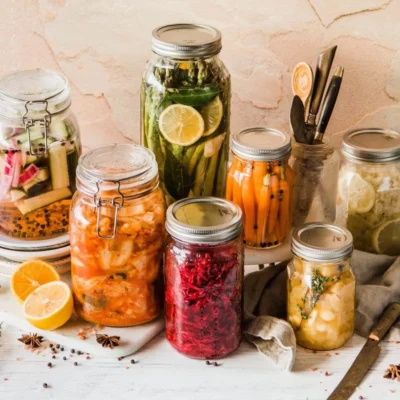Sustainable cuisine: how to reduce food waste on board
Cruising on a yacht is not just an experience of luxury and adventure but also an opportunity to adopt sustainable practices that contribute to the health of our planet. Managing food waste is a crucial component of sustainability on board, as it not only reduces environmental impact but also ensures that every meal is fresh and high quality.
In collaboration with our exclusive partner for the Sicily area, Seacily Supplies, we have developed a series of strategies and techniques to help our readers reduce food waste during their yacht trips. The first line of defense against food waste is careful planning. Before setting off, it is essential to accurately estimate the amount of food needed for the trip. Here are some tips:
- Create a Detailed Menu: Plan meals in advance, considering the number of guests and the duration of the trip. This will help you determine exactly which and how many ingredients to purchase.
- Buy Locally: During the trip, take advantage of local markets to buy fresh and seasonal products. Seacily Supplies, our exclusive partner for the Sicily area, offers a wide range of fresh and sustainable products along the Sicilian coast, ensuring high-quality, locally sourced ingredients.
Proper food storage is essential to maintain freshness and prevent waste. Seacily Supplies recommends the following techniques:
- Adequate Refrigeration: Use efficient refrigerators and freezers to store meat, fish, dairy, and vegetables. Regularly check the temperatures to keep the food in optimal conditions.
- Vacuum Sealing: Vacuum sealing extends the shelf life of food by removing air that can cause oxidation and bacterial growth. This technique is particularly useful for meat and fish.
- Use of Airtight Containers: Store pasta, rice, legumes, and spices in airtight containers to protect them from moisture and pests. Add silica packets to keep dry foods dry.
- Fermentation and Preserves: Fermentation and preserving in jars are ancient techniques that can be very useful on board. Fermented vegetables like kimchi and sauerkraut not only last long but are also healthy and add variety to the diet.
Another way to reduce waste is to creatively reuse leftovers:
- Soups and Stews: Leftover vegetables can easily be turned into nutritious soups. Blend cooked vegetables with broth to create a creamy and flavorful base.
- Salads: Leftover meat, fish, or vegetables can be added to fresh salads, creating tasty and healthy dishes.
- Smoothies: Overripe or leftover fruit can be used to make delicious smoothies, reducing waste and adding nutrients to your diet.
Training the crew on the importance of managing food waste is fundamental. Organize training sessions to teach storage techniques, stock management, and creative recipes for reusing leftovers. Continuous education and awareness are key to maintaining sustainable practices on board.
Adopting sustainable practices for managing food waste on board not only helps the environment but also improves the quality of life at sea. With the help of our exclusive partner for the Sicily area, Seacily Supplies, we are able to offer practical and effective solutions to ensure that every meal on board is fresh, tasty, and safe, regardless of how long you spend at sea. Investing in advanced preservation techniques and promoting awareness among the crew are fundamental steps toward a more sustainable future.
For more information on the fresh and sustainable products offered by Seacily Supplies, visit their website here.


